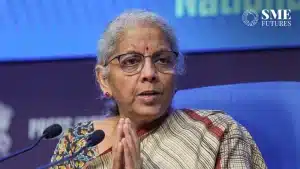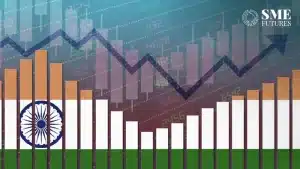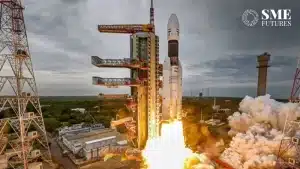MSMEs are the foundation of India’s economic growth and account for at least 30 per cent of the country’s GDP. At the same time, they are extremely diverse, ranging from highly advanced operations to a simple entity managed by a microentrepreneur.
Industrial units make up a large portion of the MSMEs, accounting for 95 per cent of all MSMEs and 50 per cent of the exports. Furthermore, the sector employs nearly a 100 million people, making it the second largest source of employment in the country after agriculture. Thus, the development of this sector is critical to inclusive growth and to India’s future.
The outbreak of the pandemic has dealt a severe blow to India’s MSMEs. The manufacturing industries came to a halt a year ago due to the sudden shutdown. This resulted in serious industry problems as well as spelling doom and gloom for the economy of the country. Furthermore, the severe reliance that they had on China, led to a significant impact on the supply chains as well.
Despite the fact that the pandemic period has been a time for a paradigm shift for the manufacturing MSMEs, these industries are seriously lagging in the growth that they were expected to achieve as of today. Still dealing with the effects of the first and second waves, manufacturing activity is on the decline. It can be gauged by the fact that activity fell to its lowest level in ten months in May 2021, between the first and second waves of the COVID-19 pandemic.
According to IHS Markit, India’s PMI for May 2021 was 50.8, down from 55.5 in April, indicating the strain on the sector. As a result, there is a noticeable weakening in the manufacturing process, sales, and input and in consumer purchasing as well. And as the experts continue to warn us of an impending third wave, further headwinds for the manufacturing sector cannot be overlooked.
However, with challenges come opportunities, says Hemant Sapra, co-founder and president—Global Marketing at Karam Industries, a personal protective equipment manufacturer.
Since last year, the PPE manufacturing market has grown exponentially in India, taking its market worth to Rs 10,000 crores. In the next five years, market forecasts expect it to grow by US$ 92.5 billion globally. Talking to SME Futures, Sapra elaborates on the current scenario pertaining to India’s manufacturing sector and what it is going through.
Edited Excerpts:
MSMEs, regardless of sector, are still fighting the pandemic, and the third wave has been declared. What are your thoughts on the current state of MSMEs in India?
With the global pandemic affecting all facets of life, likewise, the MSME Industry has also witnessed a striking paradigm shift. Upending the daily lives of employees and workers across industries, the pandemic has introduced us to innumerable challenges.
But with challenges come opportunities.
We, at KARAM, leveraged this opportunity in disguise to continue prospering by embracing digital transformation in our work culture. From a broad scale move to remote working to training executives with digital tools & technologies, we ensured an unbroken and productive workflow.
The manufacturing sector was severely harmed because of the lockdowns. What has been the impact, and how is the industry faring in 2021?
Since 2020, the lockdowns plunged MSME owners, employers and external stakeholders into a sea of uncertainty, where no one had the experience to handle this kind of a situation. The extended lockdowns had a negative impact on the supply of finished goods, procurement of raw materials and the availability of employees to work in the production and supply processes, leading to challenges related to debt repayments, wages or salaries, statutory dues, etc.
The economic slowdown along with the tensions at our borders, have once again forced the sector to refocus on self-sustainable values, the Swadeshi dream. The Aatmanirbhar Bharat Mission was launched to tackle two burning issues simultaneously; one being to boost our MSMEs and the other being to lessen our dependence on foreign nations.
Can you shed some light on how the pandemic has opened doors for Indian MSMEs to gain access to the global market?
The increasing demand for personal protective equipment (PPE) to combat the COVID-19 pandemic in local as well as global markets has proffered a huge opportunity to the domestic players.
With ramped up production of PPE kits, India has now become a producer of PPE kits from being an importer earlier. Before the coronavirus pandemic began, India used to import the majority of PPE kits from outside, but the virus outbreak coupled with the rising demand for PPE kits pushed the country to manufacture them indigenously. As a result, India has become the second-largest producer of PPE Kits globally with a daily production of more than 5 lakh PPE kits.
Even if we say that Indian MSMEs are resilient, the pandemic has had an impact on businesses. What additional impetus or measures are needed to get back on track?
It is very natural to expect a challenging future in terms of business after the lockdowns, but it is really not that impossible to tide over because as many believe, when the going gets tough, the tough get going.
While the novel coronavirus has wreaked havoc upon the organized world, it has also given an opportunity to the new tides of transformation to emerge. Industry types such as manufacturing, retail operations, hospitality and mobility, among others, have always existed along the physical contours of the process. While the giant multinational corporations have the advantage of vast capital and resources at their disposal, the small and medium enterprises (SMEs) benefited due to their agile and more compact nature of working.
What does the future hold for the MSME sector in the post-COVID-19 world?
As the battle with COVID-19 continues, conversations around the economic impact post-pandemic have become ubiquitous. While governments and international financial bodies have already planned strategic measures to combat the slowdown with modifications to monetary policies, rate cuts, loans and waivers etc., the trade and business communities across the country are concerned about their businesses post lockdown and are currently in various modes of planning to ensure a positive outcome for all.
The current circumstances dictate that SMEs should now increase the use of digital pathways for business engagement and create a sturdy and veritable online presence. Organisations could increase sales through customer interactions via numerous online channels of communication including social media. Organisations operating through traditional offline modes need to print out a transition layout for the approaching digital future.
Can we say that the Indian MSME sector has evolved in terms of emphasizing personal safety, protection and safety solutions? How has Karam Industries helped to raise awareness? What initiatives have you taken?
The rising cases of Covid-19 coupled with the imposition of stringent regulations regarding the safety of healthcare personnel are anticipated to bolster the demand for our product over the coming years.
Amidst this global pandemic, KARAM acted quickly and cautiously to introduce the new Healthcare range of products to tackle the COVID-19 crisis in India. Our range of ISI certified masks, face shields, eye protection glasses, and full body PPE equipment is aimed towards providing maximum comfort and highest quality assurance to our consumers so as to ease their transition towards a safe and new normal along with the medical personnel who are working day in and day out at the frontlines of this crisis.










